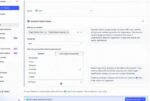
The team at the SaaS platform LaunchDarkly has released a roundup of product updates intended to help users deliver software more quickly and with less risk through feature management.
First, custom contexts are now generally available for all LaunchDarkly customers. With this, organizations are enabled to create several target objects which can map to a business’s use case.
This provides users with the ability to deliver targeting how they want as well as offers improved control and business alignment for how features are delivered.
The release of custom contexts also allows for multiple new use cases for LaunchDarkly Experimentation customers, such as the ability to create rules and build experimentation audiences based on different context types.
In addition, the possibility to randomize experiments on known variables such as device type, browser type, and more, has been expanded. According to LaunchDarkly, this keeps the experiment stable as well as eliminates randomization discrepancies that result from traditional user targeting.
Next, an approvals dashboard has been released in order to assist users in tracking and managing approvals so that they can visualize all approvals in one single dashboard with options to sort and filter by. These options include necessary approver, approval requester, project status, and approval status.
The company has also updated its notification settings, allowing users to control what notifications they would like to receive, such as flag updates or approvals, and how they would like to receive them.
Furthermore, LaunchDarkly announced a native integration with Microsoft Teams. This enables users to receive personal flag update notifications in real-time, associate chat messages with a flag via flag links, create and subscribe to channels that push flag update notifications, and get notified of approval requests right from within Microsoft Teams.
New RUM integrations for Datadog and AWS users are also available so that Datadog customers can now improve their RUM data with feature flag data from LaunchDarkly.
The team stated that this integration offers users better visibility into which flag variations end-users are experiencing and the impact that those variations have on overall engagement and application performance.
LaunchDarkly also added support for SCIM user and role provisioning in order to enhance the LaunchDarkly and Azure AD SSO integration. With this, users gain more control over provisioning with the real-time updates that SCIM offers, such as automatic de-provisioning.
Identifying flag owners has also been simplified with the addition of the ability to assign a flag maintainer. This allows for the filtering of the flag dashboard to flags maintained by teams, and further promotes flag accountability.
Dark theme is also now generally available in LaunchDarkly as an additional customization option.
Lastly, the company has reached fedRAMP authorization. With this, government agencies and their commercial partners can utilize the Federal instance of LaunchDarkly’s feature management platform to deliver software and modernize applications with improved control.






